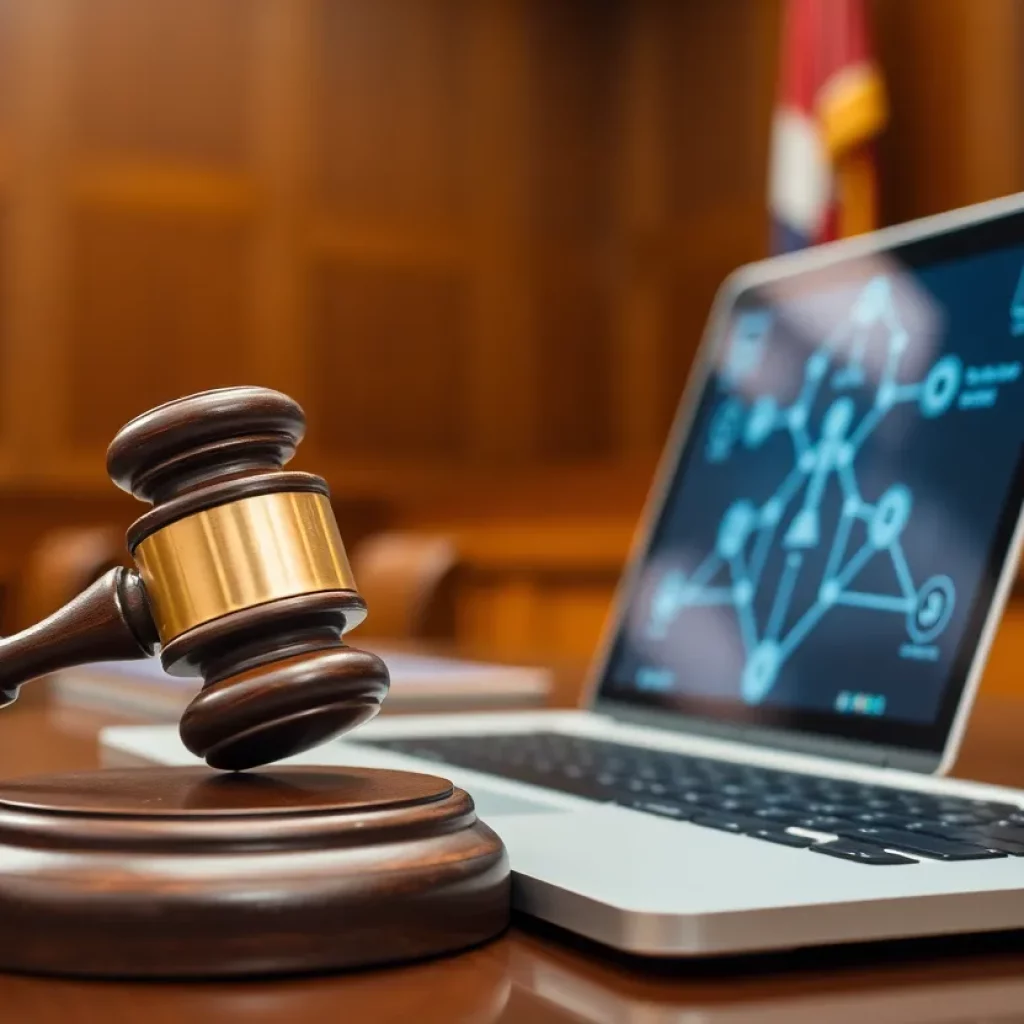News Summary
Utah lawyer Richard Bednar has been penalized for submitting a legal brief that included fabricated case law generated by AI. This incident raises concerns about the ethical implications of using AI in legal practice. The court has imposed penalties including payment of attorney fees and a contribution to a nonprofit, highlighting the critical need for diligence in the age of technology. Lawmakers are now introducing regulations to address potential misuse of AI in the legal field, signifying a growing emphasis on ethical compliance.
Lawyer Punished After AI Submits Fake Legal Precedent
In a cautionary tale that highlights the perils of integrating technology in the legal profession, Utah lawyer Richard Bednar has faced severe repercussions following the submission of a legal brief containing nonexistent case law generated by artificial intelligence. This case not only represents a significant misstep in legal judgment but also emphasizes the increasing scrutiny surrounding the use of AI in law.
The Ill-Fated Brief
The catalyst for the court’s decision was the discovery that a case cited in Bednar’s brief, Royer v. Nelson from 2007, was entirely fictional. This dubious precedent formed a critical part of Bednar’s appeal in an ongoing dispute involving a former executive from a Layton-based company who sought payment for shares following claims of improper firing. The executive’s case has been mired in litigation for over five years before this latest controversy came to light.
It became clear that the brief filed by Bednar was littered with inaccuracies beyond the made-up case. Other cited cases were flagged by opposing counsel as being irrelevant and incorrectly described due to what experts in the field are now referring to as AI’s “hallucinations.” This term has gained traction in legal circles to indicate when AI systems produce incorrect or fabricated responses.
Who is Responsible?
Bednar defended himself by stating that the problematic brief was prepared by a law clerk without his direct oversight. He admitted to failing to fact-check the claims before submitting the brief to the court. The aftermath was swift, with the appeals court dealing a firm blow by rejecting Bednar’s petition for review. The judges made it clear that the issue of submitting false legal precedent is taken with utmost seriousness, warranting appropriate sanctions.
The Penalties Imposed
In response to this incident, the court ordered Bednar to pay the attorney fees for the opposing party, refund fees charged to his clients, and contribute $1,000 to a nonprofit organization dedicated to providing legal services to low-income individuals in Utah. However, the appeals court decided that additional penalties were not warranted due to the absence of any intent to deceive from Bednar’s side.
Background Context and Related Issues
This incident is not a standalone case; it mirrors similar circumstances that have emerged nationally. Legal professionals in other regions, including New York and federal courts, have also faced sanctions attributed to the erroneous use of AI-generated information. Such occurrences underline the urgent need for attorneys to occupy a vigilant stance in the age of technology.
Adding complexity to Bednar’s situation is his history; in 2012, he was suspended for three years after complaints related to cases involving military clients in Virginia. This fact has raised alarms about his judgment in light of current events and has subjected him to an even sharper focus from governing legal bodies.
Growing Oversight on AI Use
Utah lawmakers are responding to potential misuse of AI technologies by amending the state’s Artificial Intelligence Policy Act (UAIP). These amendments will focus on regulating AI usage among attorneys and other licensed professionals, emphasizing ethical compliance. As part of these efforts, the Office of Artificial Intelligence Policy has been given a deadline of July 2027 to ensure robust operational readiness under recently passed legislation.
Additionally, the legislative landscape in Utah is evolving with new bills in place specifically aimed at consumer protection, mental health applications, and the regulation of deepfakes. This climate of increasing legislative oversight illustrates a societal push towards responsible AI integration within critical sectors, including law.
Conclusion
As the legal field grapples with the implications of artificial intelligence, cases like that of Richard Bednar serve as stark reminders of the importance of maintaining professional ethics and diligence. As the use of AI continues to expand its footprint in legal processes, it is imperative for legal professionals to engage deeply with technology, ensuring that such tools enhance—not compromise—the integrity of the justice system.
Deeper Dive: News & Info About This Topic
HERE Resources
Former Lawyer Charged with Murder in Stabbing Case
Trump’s Lawyer Files Billion-Dollar Lawsuit Against CBS News
Lawyer Fights for Justice in Asbestos Struggle
The Financial Strain of Mesothelioma Treatment: A Call for Legal Support
University of South Carolina Ranked Top for International MBA
Charleston and Jersey Shore Set for Beautiful Weekend Weather
Tragic Hit-and-Run Claims Life of University Student
GMV Law Group Strengthens Focus on Truck Accident Legal Services
The Vital Role of Car Accident Lawyers in Legal Cases
BANA LAW, PC: A New Name for an Established Lawyer Firm
Additional Resources
- The Salt Lake Tribune
- Wikipedia: Artificial Intelligence in Law
- Encyclopedia Britannica: Artificial Intelligence
- Google Search: Legal Consequences of AI
- Google Scholar: AI in Law
Author: STAFF HERE CHARLESTON
The CHARLESTON STAFF WRITER represents the experienced team at HEREcharleston.com, your go-to source for actionable local news and information in Charleston, Charleston County, and beyond. Specializing in "news you can use," we cover essential topics like product reviews for personal and business needs, local business directories, politics, real estate trends, neighborhood insights, and state news affecting the area—with deep expertise drawn from years of dedicated reporting and strong community input, including local press releases and business updates. We deliver top reporting on high-value events such as the Spoleto Festival USA, Charleston Wine + Food Festival, and the MOJA Festival. Our coverage extends to key organizations like the Charleston Metro Chamber of Commerce and the Charleston Museum, plus leading businesses in tourism and maritime industries that power the local economy such as South Carolina Ports Authority and the Charleston Visitor Center. As part of the broader HERE network, including HEREaiken.com, HEREbeaufort.com, HEREchapin.com, HEREcharleston.com, HEREclinton.com, HEREcolumbia.com, HEREgeorgetown.com, HEREgreenwood.com, HEREgreenville.com, HEREhiltonhead.com, HEREirmo.com, HEREmyrtlebeach.com, HEREnewberry.com, HERErockhill.com, HEREspartanburg.com, HEREaustin.com, HEREcollegestation.com, HEREdallas.com, HEREhouston.com, and HEREsanantonio.com, we provide comprehensive, credible insights into South Carolina's dynamic landscape.










